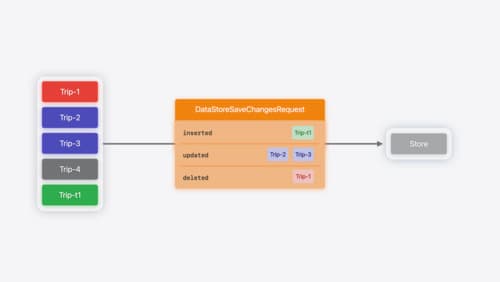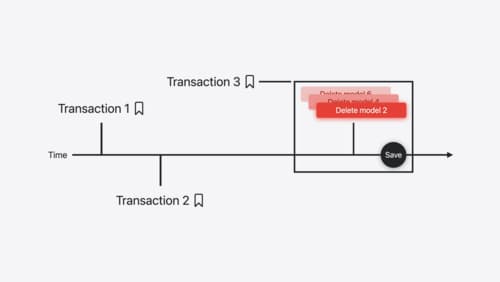fixes to core data
Asked on 2024-08-07
1 search
Apple introduced several enhancements to Core Data through Swift Data at WWDC 2024. Here are some key updates:
-
Custom Data Stores: Swift Data now allows the use of custom data stores, enabling developers to store data using alternative backends like SQLite, remote web services, or JSON files. This flexibility allows the use of Swift Data's API with various storage formats (Platforms State of the Union).
-
History API: Swift Data includes a history API that tracks changes in the datastore. This feature is useful for tracking local changes that need to be synced with a remote web service. The history API records transactions containing metadata about all changes, making it easy to inspect recent modifications (What’s new in SwiftData).
-
Migration from Core Data: For those using Core Data's persistent history, Swift Data history provides a seamless migration path. Custom data stores can also support history tracking by implementing their own history types (Track model changes with SwiftData history).
-
Model Container Customization: Swift Data allows further customization of the model container, including the ability to define custom data stores. This enables the use of familiar Swift Data APIs regardless of the data format (What’s new in SwiftData).
-
DataStore Protocol: The DataStore protocol defines the necessary functionality for a store to be usable by the model context, including save, fetch, and caching operations. Additional protocols define optional features like history tracking (Create a custom data store with SwiftData).
Relevant Sessions
- Platforms State of the Union
- Create a custom data store with SwiftData
- What’s new in SwiftData
- Track model changes with SwiftData history
These updates make it easier to work with data in Swift, providing more flexibility and powerful tools for managing data changes and storage.

Create a custom data store with SwiftData
Combine the power of SwiftData’s expressive, declarative modeling API with your own persistence backend. Learn how to build a custom data store and explore how to progressively add persistence features in your app. To get the most out of this session, watch “Meet SwiftData” and “Model your schema with SwiftData” from WWDC23.

What’s new in SwiftData
SwiftData makes it easy to add persistence to your app with its expressive, declarative API. Learn about refinements to SwiftData, including compound uniqueness constraints, faster queries with #Index, queries in Xcode previews, and rich predicate expressions. Join us to explore how you can use all of these features to express richer models and improve performance in your app. To discover how to build a custom data store or use the history API in SwiftData, watch “Create a custom data store with SwiftData” and “Track model changes with SwiftData history”.

Track model changes with SwiftData history
Reveal the history of your model’s changes with SwiftData! Use the history API to understand when data store changes occurred, and learn how to use this information to build features like remote server sync and out-of-process change handing in your app. We’ll also cover how you can build support for the history API into a custom data store.
